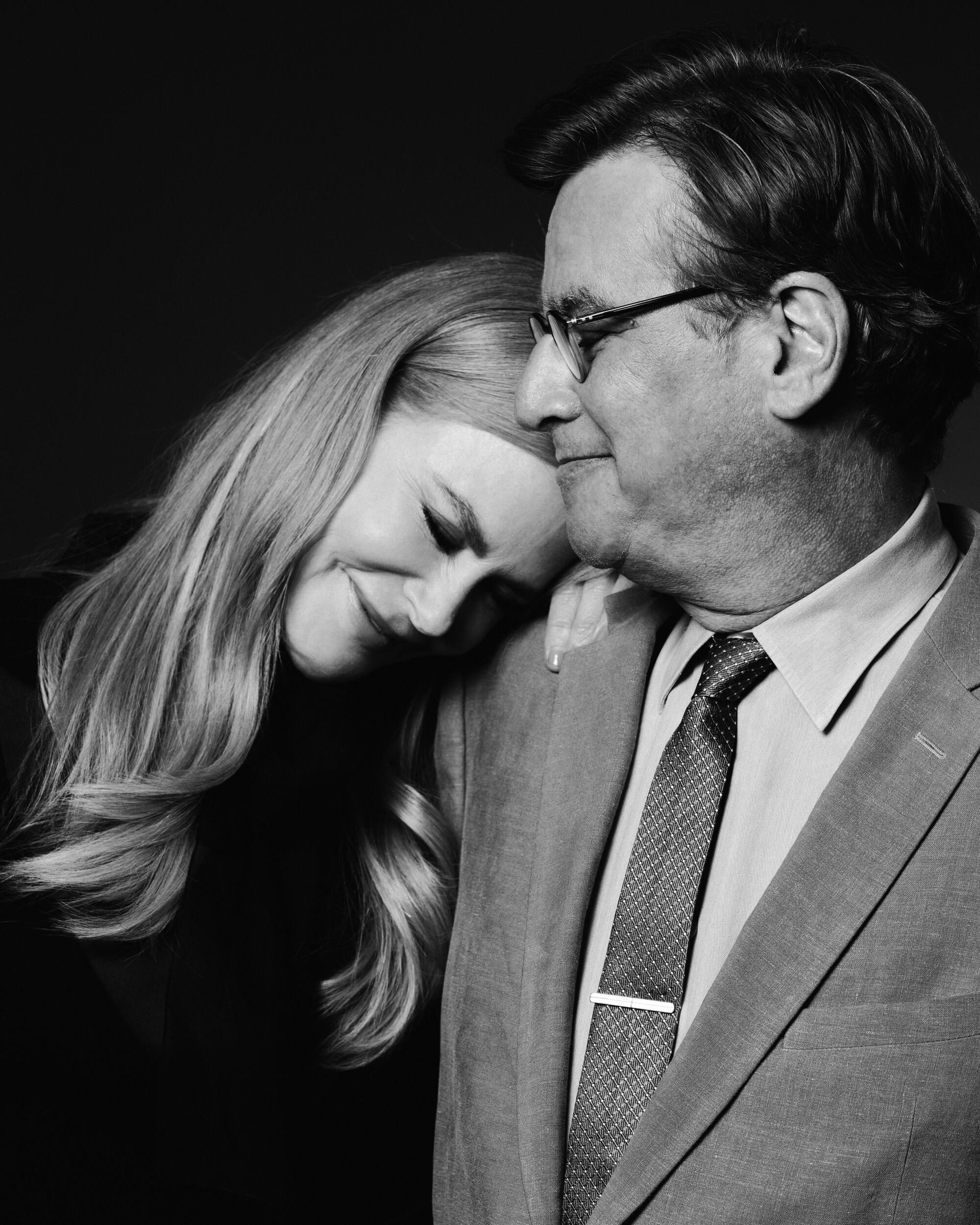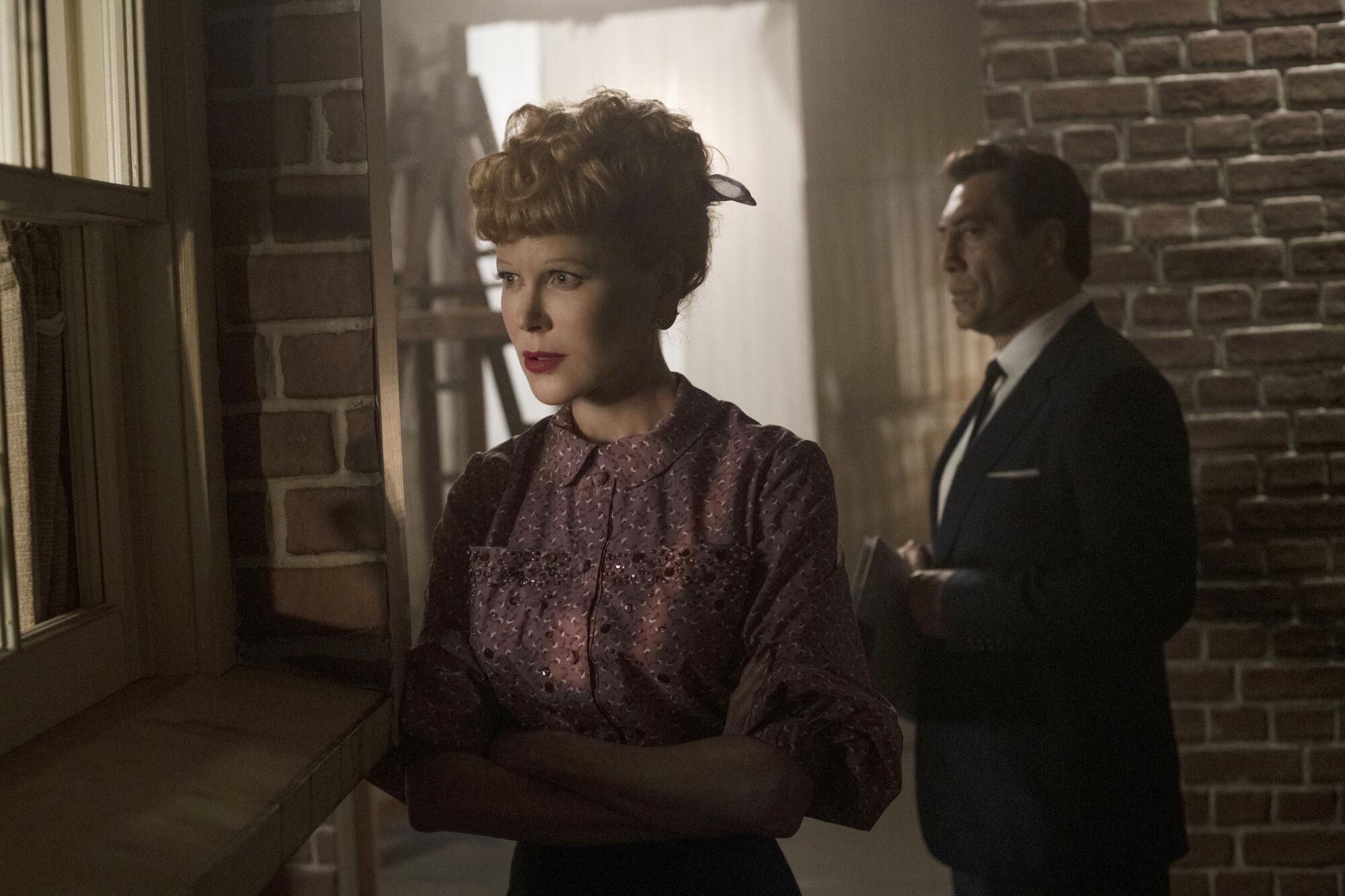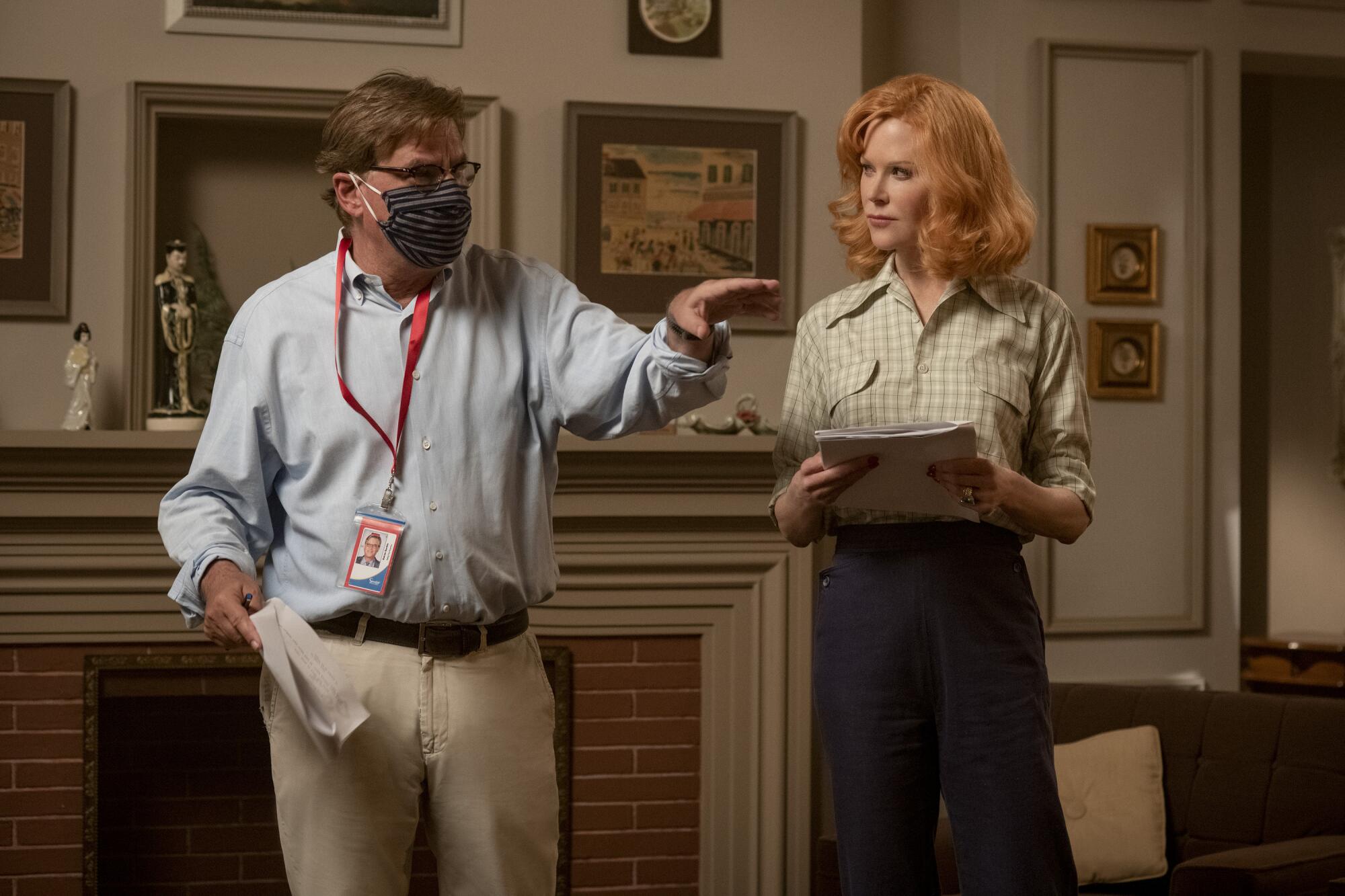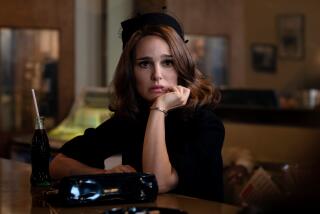
When it was first announced that Nicole Kidman would be playing Lucille Ball in Aaron Sorkin’s “Being the Ricardos,” many fans of “I Love Lucy” were beyond skeptical, calling for a replacement for the “miscast” Kidman. But shortly after the first public preview of the fictionalized Amazon Studios biopic at a packed Westwood theater in mid-November, the tone began to change. Kidman’s name in the end credits elicited thunderous applause, and her entrance for a post-screening Q&A was welcomed with a standing ovation.
“I don’t recommend that anyone read Twitter under any circumstances,” writer-director Sorkin says not long after that screening.
“And I don’t,” emphasizes Kidman. “I don’t even have Twitter, so I don’t read it.”
“If you read it this morning,” he continues, “you would think I wrote the tweets — from people who were there last night, industry people, awards prognosticators, that kind of thing — all of them saying, ‘How stupid was I to doubt that Nicole would be amazing? That’s what Nicole does.’”
Kidman admits to having been disheartened yet emboldened by the public backlash to her casting, calling it a “frightening prospect” to have to carry on knowing so many people didn’t want to see her playing Ball. “But at the same time,” notes the actress, “her daughter [Lucie Arnaz, an executive producer on the project] said, ‘I want you to play her.’”
Kidman also came to trust that Sorkin had the utmost faith in her. “A lot of me was leaning onto Aaron, going, ‘Do you really believe I can do this?’ And he’d be like, ‘Yep!’ He sends the most incredible emails when you need them. You just go, ‘OK, OK. Keep it simple. Don’t overthink anything because you just have to keep moving forward day by day with this.’ It’s a great way to approach performing in something that is completely overwhelming.”

Kidman also ultimately understood Sorkin was not demanding of her an impersonation of Ball. “I’d be like, ‘How about a nose? Can I have a chin?’” she remembers. His answer was always “No.” “Finally, I just had to go, ‘OK, I’ll just embody her from the inside out and hope that everything else works.’”
“And that’s OK,” adds Sorkin, “It’s something a lot of actors can’t — or aren’t willing to — do.”
Sorkin’s intent in eliminating imitation as an option for his cast — which, in addition to Kidman, includes Javier Bardem as Desi Arnaz, J.K. Simmons as William Frawley and Nina Arianda as Vivian Vance — was to allow them to play not just the iconic “I Love Lucy” characters but also the actors who portrayed them on that phenomenally successful television sitcom that aired Monday nights on CBS from 1951 to 1957.
“Most people can’t separate them,” Sorkin says of the “Lucy” leads and their fictional counterparts, adding that watching Ball in her earliest Hollywood films, and in home movies provided by Lucie Arnaz, was a revelatory experience, so dissimilar to TV’s Lucy was her appearance. “She was a knockout, a Rita Hayworth-level movie star.”
While “Being the Ricardos” is a love story nestled inside a comedic workplace drama that takes place during a single week of production on “I Love Lucy,” reenactments of scenes from the show are few. Sorkin crafted his script by combining three momentous true events — Ball being accused of being a communist, her suspecting Arnaz’s infidelity and news of her pregnancy with their second child — that didn’t happen during the same year, much less in one Monday-to-Friday span. “I had this notion that if I compressed time and space,” he says of his artistic license, “I could create drama that reveals interesting things about Lucy — and Desi too.”
It’s that complex yarn — hilarious and heartbreaking at once — that instantly attracted Kidman to the role. “I can name maybe two other writers working today, and that’s it,” she says of modern Hollywood talents operating on Sorkin’s exalted level, observing that her fellow Oscar winner was “writing and directing with passion and love.”

For the handful of glimpses of Kidman as Lucy on the sitcom, she and Sorkin did feel it was crucial she mirror those as precisely as possible.
“There were things that I did ask of Nicole — and that Nicole asked of herself,” Sorkin says, pointing to Kidman’s contrasting vocal inflections, mastered thanks to work with her longtime voice and dialect coach, Thom Jones. “Lucy Ricardo is about an octave above Lucille Ball.”
As for nailing Ball’s Emmy-winning comic choreography, such as in that classic grape-stomping scene, Kidman studied long and hard, rehearsing repeatedly.
“I would put it on my iPhone and send it to him from Australia, going, ‘Aaron, look!’” she says.
“I remember getting that first one that you sent, where you were doing the scene with Vivian Vance offscreen from the real show,” recalls Sorkin. “It knocked me out. I sent it to [producer Todd Black] right away, saying, ‘She’s gonna be good.’”
How good?
“She cried,” Kidman reveals of Lucie Arnaz seeing the finished film for the first time. “For Javier and me, that’s a big thing. We’re her parents. Part of me says, ‘It’s your mum. You have ownership.’”
Not only was Arnaz deeply moved by the actors, she’s wholeheartedly, quite publicly embraced the film.
“On a personal level, it’s incredibly gratifying,” notes Sorkin. “It means a lot that we touched her. That’s a big deal. On a business level, on a professional level, it was also a big deal. I think that we could have survived without her endorsement. But if she didn’t like the movie, the fact that she didn’t like the movie would appear in every story about the movie. So, I’m grateful that she’s been as effusive as she has.”
More to Read
From the Oscars to the Emmys.
Get the Envelope newsletter for exclusive awards season coverage, behind-the-scenes stories from the Envelope podcast and columnist Glenn Whipp’s must-read analysis.
You may occasionally receive promotional content from the Los Angeles Times.







